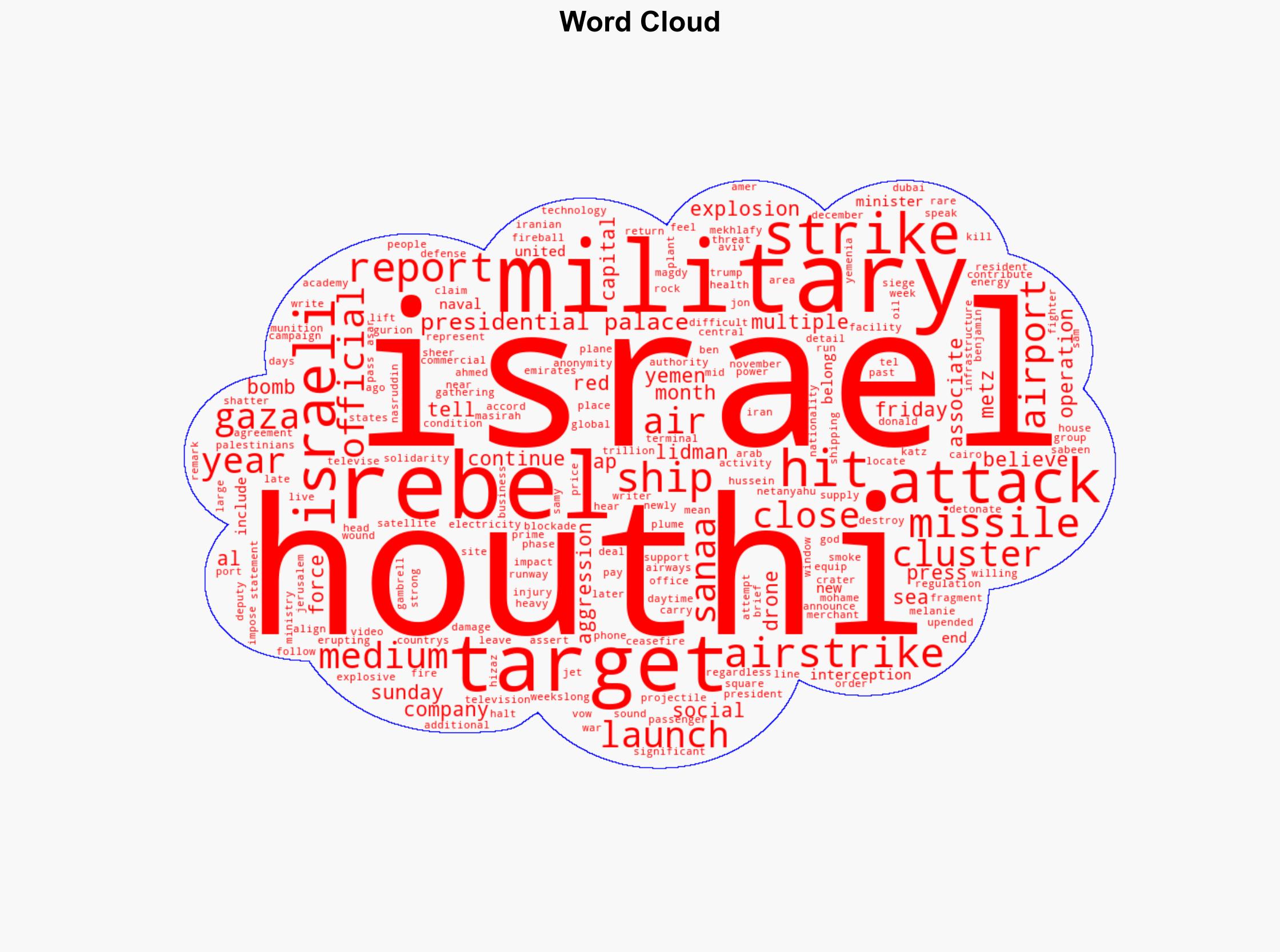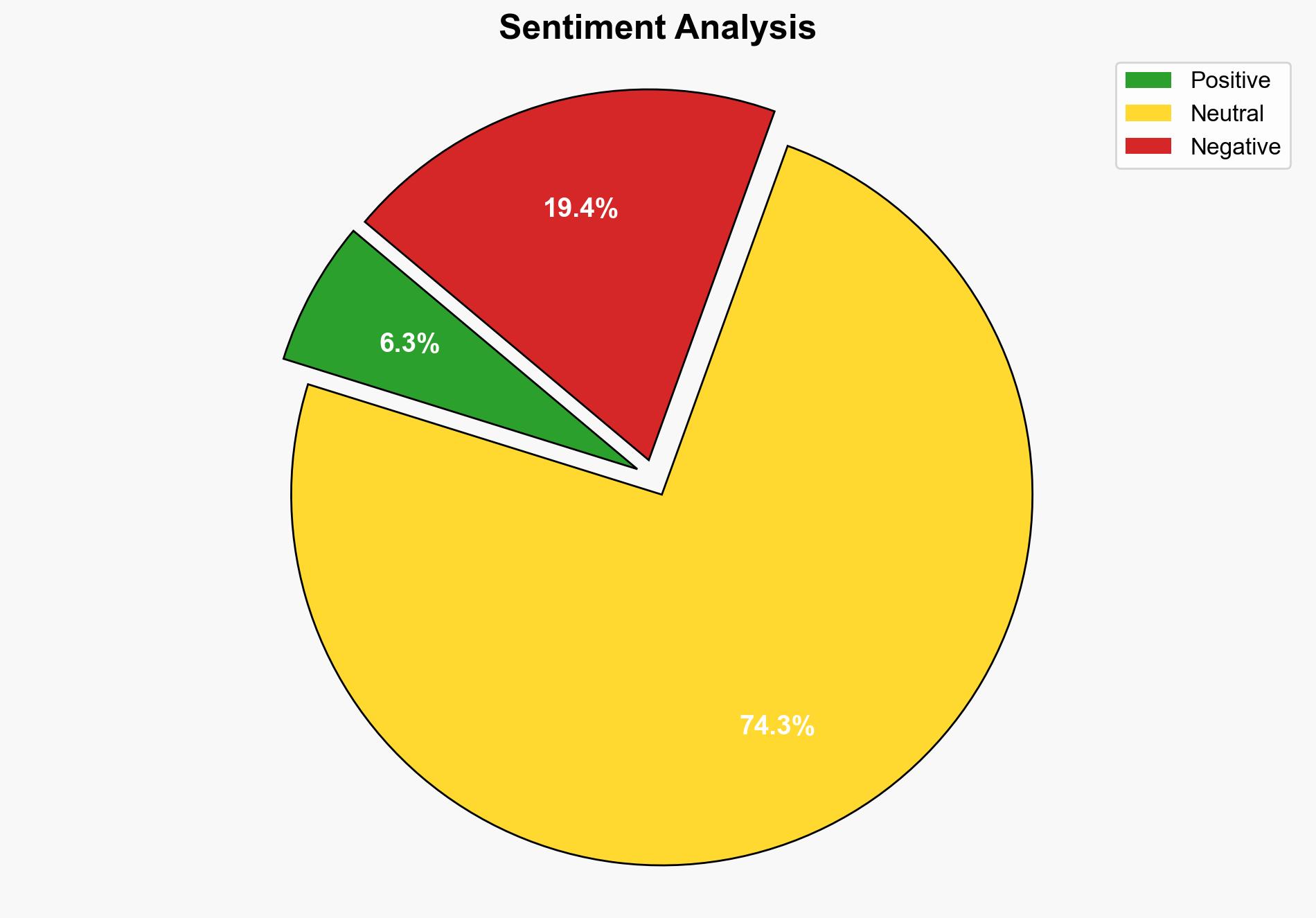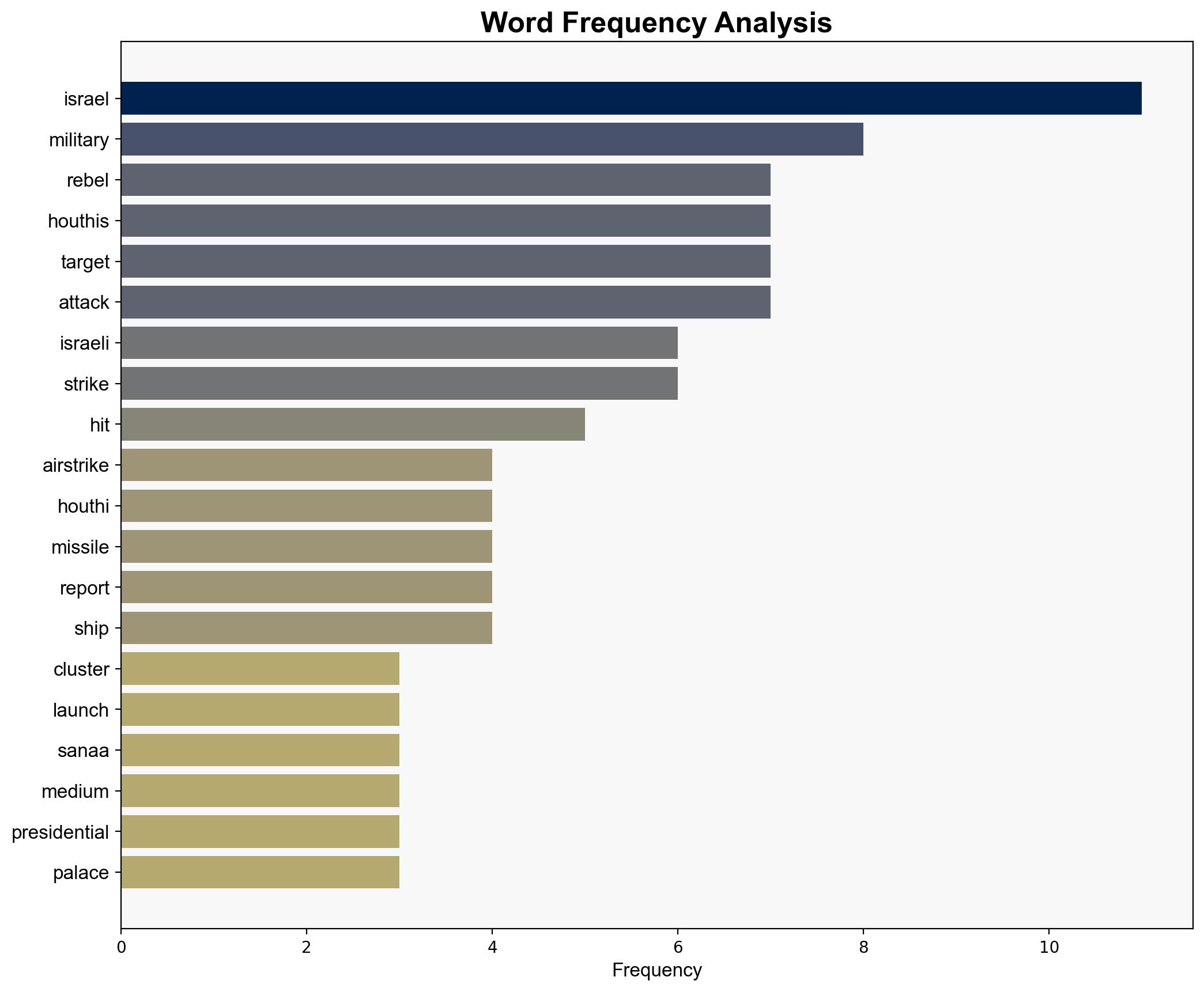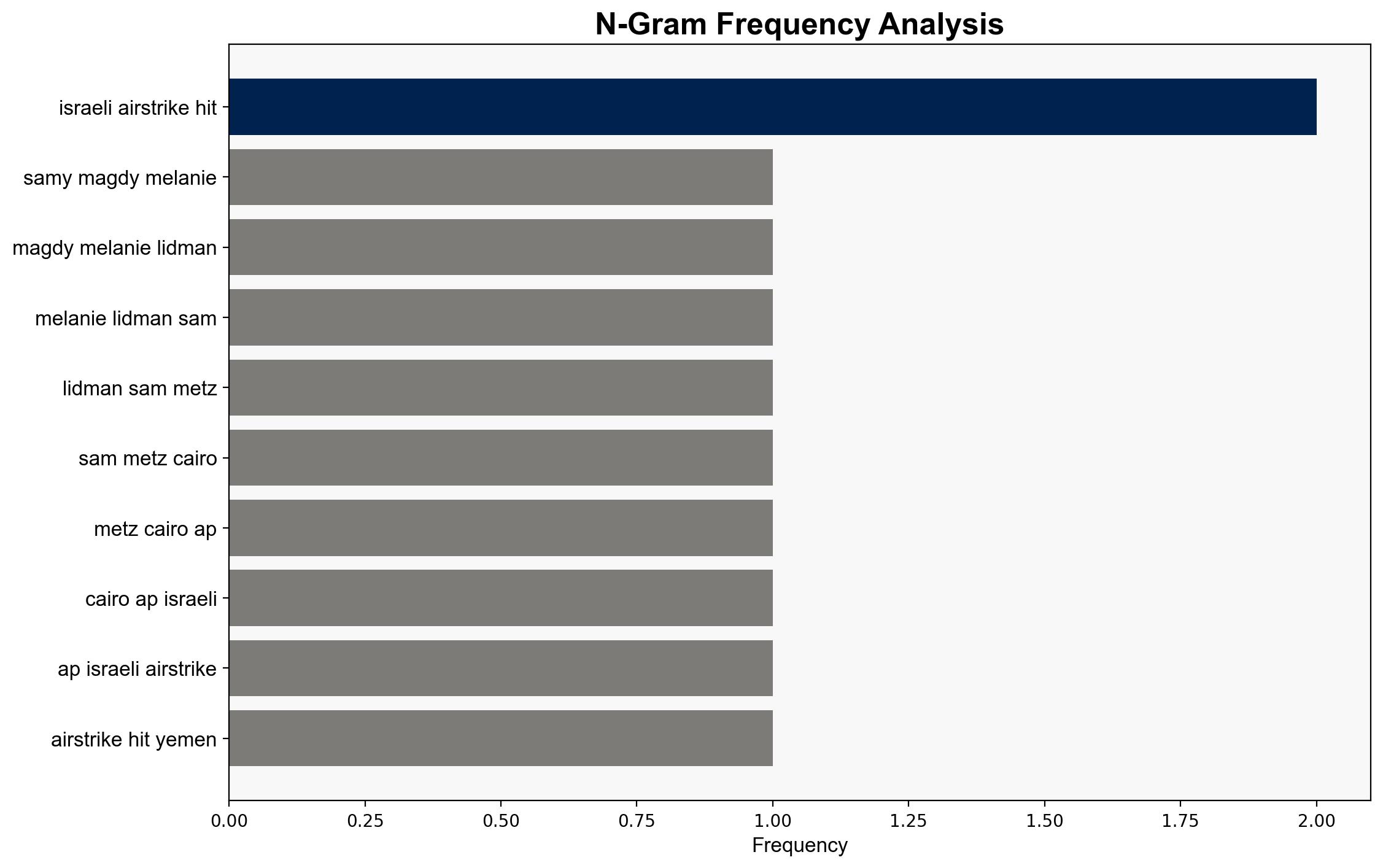Israeli airstrikes targeting Iran-backed Houthis rock Yemens capital – Boston Herald
Published on: 2025-08-24
Intelligence Report: Israeli airstrikes targeting Iran-backed Houthis rock Yemen’s capital – Boston Herald
1. BLUF (Bottom Line Up Front)
The most supported hypothesis is that Israel’s airstrikes are a strategic response to Houthi missile threats, aiming to deter future attacks and protect regional stability. Confidence level: Moderate. Recommended action: Enhance intelligence-sharing with regional allies to monitor Houthi capabilities and Iranian support networks.
2. Competing Hypotheses
1. **Deterrence and Defense Hypothesis**: Israel conducted airstrikes in Yemen to deter Houthi missile attacks on Israeli territory and shipping lanes, responding to recent escalations and demonstrating military capability.
2. **Strategic Disruption Hypothesis**: The airstrikes aim to disrupt Iranian influence in Yemen by targeting Houthi infrastructure, thereby weakening Iran’s proxy capabilities in the region.
Using ACH 2.0, the Deterrence and Defense Hypothesis is better supported due to the immediate context of Houthi missile launches and Israel’s historical pattern of preemptive strikes to neutralize threats.
3. Key Assumptions and Red Flags
– **Assumptions**: The analysis assumes that the Houthi missile capabilities pose a significant threat to Israel and that the airstrikes effectively degrade these capabilities.
– **Red Flags**: Limited independent verification of the airstrike impact and potential exaggeration of Houthi capabilities by involved parties.
– **Blind Spots**: The extent of Iranian logistical and technological support to the Houthis remains unclear.
4. Implications and Strategic Risks
– **Escalation Risks**: Continued airstrikes may provoke further Houthi retaliation, potentially drawing in regional actors and escalating into broader conflict.
– **Geopolitical Dynamics**: The strikes could strain Israel’s relations with countries sympathetic to the Houthis or Iran, complicating diplomatic efforts.
– **Economic Impact**: Disruption in the Red Sea shipping lanes could affect global trade, increasing insurance costs and shipping delays.
5. Recommendations and Outlook
- Enhance regional intelligence cooperation to monitor Houthi and Iranian activities.
- Prepare for potential retaliatory attacks by securing critical infrastructure and increasing maritime patrols.
- Scenario Projections:
- **Best Case**: Successful deterrence leads to de-escalation and renewed diplomatic engagements.
- **Worst Case**: Escalation into a wider regional conflict involving multiple state actors.
- **Most Likely**: Continued tit-for-tat strikes with intermittent diplomatic efforts to de-escalate tensions.
6. Key Individuals and Entities
– **Hussein Mohame**: Resident near the presidential palace in Sanaa.
– **Ahmed Al Mekhlafy**: Resident affected by the airstrikes.
– **Nasruddin Amer**: Deputy head of the Houthi media office.
– **Benjamin Netanyahu**: Israeli Prime Minister.
– **Israel Katz**: Israeli Defense Minister.
7. Thematic Tags
national security threats, regional stability, counter-terrorism, Middle East conflict




